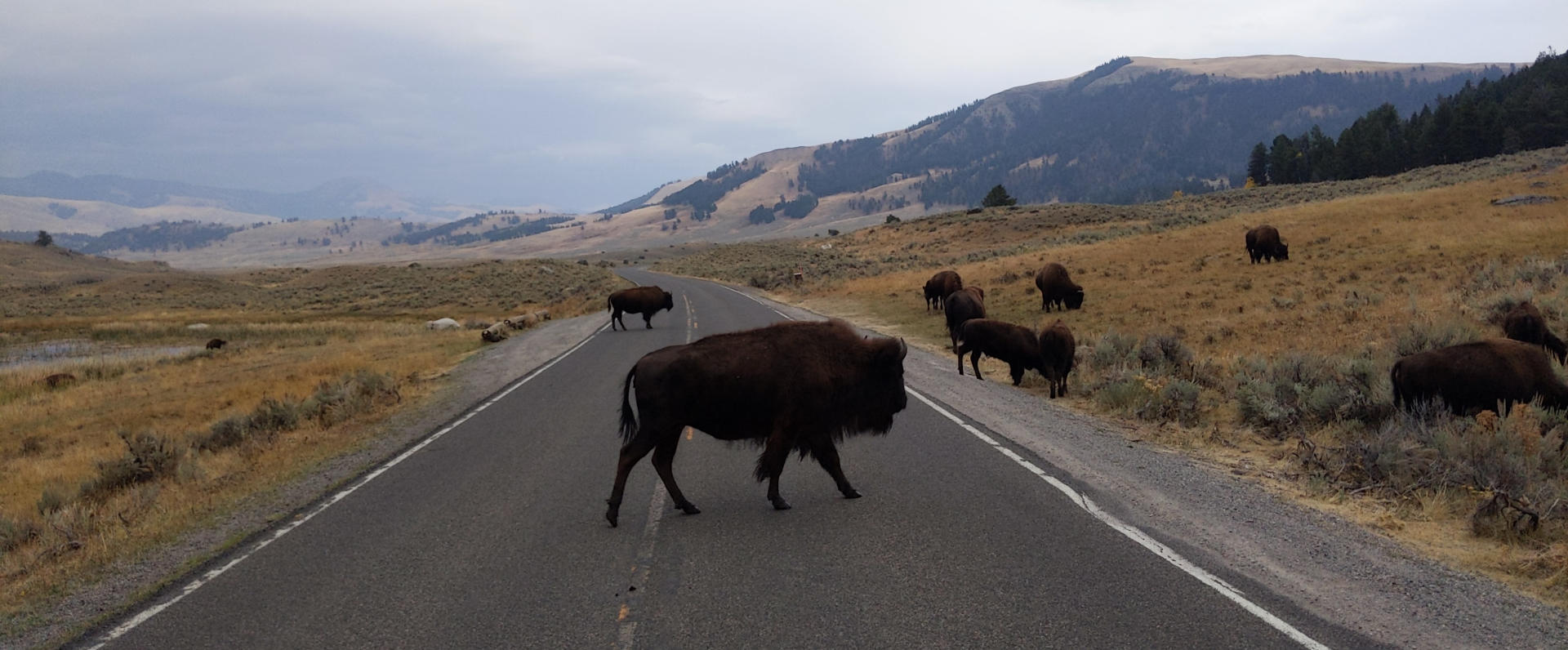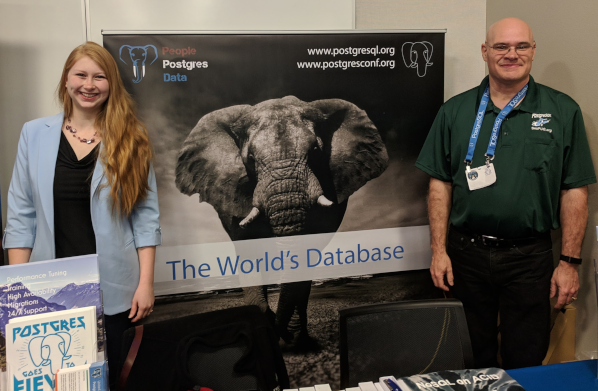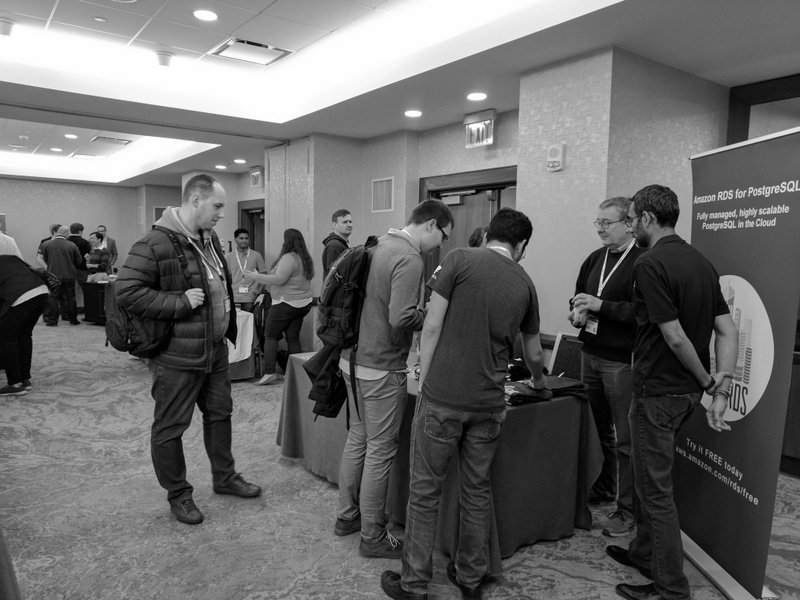On occasion, professional developers will drop into the Postgresql.org mailing lists, meetups, and conferences to ask the question, “Why isn’t PostgreSQL development on Github?” In an effort to see if the demand was really there and not just anecdotal we ran a poll/survey over several social media platforms that asked a simple question:
Should PostgreSQL development move to Github?
- Yes
- No
- No, but to something like Gitlab would be good
We received well over 300 responses and the majority (75%+) chose a move to Github or to something like Github. This was an unscientific poll but it does point out a few interesting topics for consideration:
- We need to recognize that the current contribution model does work for existing contributors. We need to have an honest discussion about what that means for the project as contributors age, change employment, and mature in their skill set, etc..
- Of the people that argued in comments against the move to a service, only one is a current contributor to PostgreSQL.org core code. The rest were former code contributors or those who contribute in other ways (Advocacy, System administration, etc.).
- Would a move to Github or similar option produce a higher rate of contribution?
This poll does not answer point #3; it only provides a data point that people may desire a modern collaboration platform. The key takeaway from the conversation about migrating to Github or similar service is the future generation of developers use technology such as Slack and Microsoft Teams. They expect a bug/issue tracker. They demand simplicity in collaboration and most importantly they will run a cost->benefit analysis to determine if the effort to contribute is a net positive.
It should also be considered that this is not just individual potential contributors. There are many corporations big and small that rely on the success of PostgreSQL. Those corporations will not contribute as much directly to PostgreSQL if the cost to benefit analysis is a net negative. They will instead contribute through other more productive means that produce a net positive when the cost->benefit analysis is run. A good example of this analysis is the proliferation of external projects such as pg_auto_failover, patroni and lack of direct contribution from innovative extension based companies.
Do we need a culture shift within PostgreSQL?
There are those within the Postgresql.org community that would suggest that we do not need a culture shift within PostgreSQL but that does not take into account the very clear market dynamics that are driving the growth of PostgreSQL, Postgres, and the global ecosystem. It is true that 20 years of hard work by Postgresql.org started the growth and it is also true that the majority of growth in the ecosystem and community is from products such as Greenplum, Aurora, Azure, and Timescale. The growth in the ecosystem is from the professional community and that ecosystem will always perform a cost to benefit analysis before contributing.
It is not that we should create radical rifts or disrupt our culture. It is to say that we must evolve and shift our community thinking. We need to be able to consider the big picture. A discussion should never start as an opposition to change. The idea of change should be an open discussion about possibility and vision. It should always include whether the change is a good idea and it should always avoid visceral reactions of, "works for me,” “no,” or “we tried that 15 years ago." Those reactions are immature and lacking in the very thing the community needs to continue to grow: positivity, inclusion, vision, and inspiration.
PGConf US and Austin PUG organized a PGConf Mini last night. It was three presentations over the evening. We had good attendance and excellent community participation. The highlight of the evening was PGConf US Co-Chair Jim Molgendski's presentation, "Top 10 Mistakes When Migrating from Oracle to PostgreSQL".
We tried something new this time around. We utilized Twitter's Periscope capability to live stream his presentation. It wasn't perfect but it was our first time and we are looking forward to utilizing the platform more in the future.
Click here to watch "To Mistakes When Migrating From Oracle to PostgreSQL", and then submit a presentation to one of our upcoming conferences:
- Diamond Sponsor: Amazon Web Services
- Platinum Sponsor: OpenSCG
Why did you attend PgConf US?
We have been looking for high quality, experienced, professional support for our application’s database for some time. We have found it difficult to find help online… seemingly every phone number we called was just an answering service. When we heard that the companies offering the level of service we were looking for were all available in the same place, we couldn’t resist.Tell us a little bit (one or two paragraphs) about your project:
Our project (VX and VO collectively named Victor) is a SaaS solution for 911 emergency response systems. Victor provides analytics and quality assurance tools and services, enabling agencies to assess performance, measure resource & deployment activity, model demand, optimize workload, and even generate financial estimates. For more information see our website.Why did you chose PostgreSQL for your project?
Victor requires both time and spacial awareness, along with all the other things that are expected from an RDBMS. PostgreSQL is stable, secure, mature, well documented, open source, actively developed, community supported, and generally bad ass. The choice was easy.As I understand it, attending PgConf US was a last minute decision. Do you think it was worth it? If so, why?
Absolutely! Our objective was to meet with vendors who were able to provide high quality support and we were successful. Additionally, we met a ton of super geniuses (Paragon, TimescaleDB, I’m talking about you) and learned more then expected. For example, we had no idea we could put raster images in PostgreSQL and process them with PostGIS… amazing!Would you attend PgConf US again?
Yes… see above. Unrelated, but unbelievably cool, we met a guy named Solar… a PhD (from MIT!) passionate about carbon nanotubes.Are you interested in contributing to the community and if so, in what fashion?
Yes! …and here is our biggest piece of feedback.It would be great if there was a clear point of entry for people like us… we have been using PostgreSQL for several years, have been through several upgrade cycles (we started on 9.0) and have no idea how our skills could be of use. We make SaaS applications, but make nothing in C. What else does the community need? How can we help?

With the pending GA release of Star Link, more cities adopting municipal WIFI, and the growth of remote work due to the pandemic, one would assume that cell phone providers would be falling hand over fist to provide quality services at a quality price. Unfortunately this is not the case and it is hurting the future of our workforce.

Carriers currently think that 30GB of Hotspot data is enough for the average digital nomad. While that may have been the case previously, it isn’t any longer. There is a hundreds-of-thousands-strong workforce specializing in Information Technology, Digital Design, Web Development, and other creative industries. They are living, working and adventuring in RVs, Sprinters, Skooolies (pictured), and other vehicle dwelling options. This community is nomadic by design and should not be artificially limited by technology.
Why is it that we are being charged so much money for so little? Outside of two providers announcing rural initiatives, we are still acting like data needs are small and that they come at a quality price. Data is ubiquitous; it is the new water (for getting work done). In the new economy workers need faster, higher quality, and unlimited amounts of data to get their job done.
Where could you go and what could you experience if you weren’t tethered by the faux limitations of bandwidth?
Resources
Featured Content
As one of the Founders of United States PostgreSQL, a former Director of Software in the Public Interest (one of the NPOs behind Postgresql.org), a former committer (web), former major contributor, President of the oldest PostgreSQL company still independent in North America, and the Founder of Postgres Conference (in the U.S.), I thought I would offer a knowledgeable perspective.
I have had long discussions with one of the primary people within the Fundacion PostgreSQL (Alvaro) and his heart is in the best interest of the community, even if Postgresql.org, PGEU and PGCAC do not agree. You can see this demonstrated within Fundacion’s trademark policy. That said, Fundacion PostgreSQL did go about their actions in an incorrect way. There should have been an open discussion and they should have provided PGCAC the opportunity to resolve the trademark issues on their own. It is also true that while I believe PGEU and PGCAC believe they are protecting the community, if they were interested in positive community growth and collaboration, they would not be taking the approach they currently are. The current path has far reaching implications that PGEU and PGCAC do not see.
Further, the PostgreSQL Community Association of Canada and Fundacion PostgreSQL have resorted to terrible language in representing what is actually going on within the disagreement. Using language such as, “An attack on our community” or “PostgreSQL attacks the community” is immature at best and at worst an intentional decision to use good faith and mindshare against what is largely just a disagreement that could be solved with an active mediator and a few phone calls. If this disagreement is about the best interest of the PostgreSQL community, shouldn’t that involve discourse, honesty, transparency, and kind communication?
Some facts:
- The first appearance of a PostgreSQL trademark outside of Canada wasn’t until 2018.
- The trademark PostgreSQL in the European Union was not registered until 2018.
- The trademark in Canada was registered in 2003 (filed in 1999).
- The trademark in Canada does not accurately represent PostgreSQL as the services it was registered under are:
(1) Internet consulting.
(2) Internet presence provider- DNS hosting.
(3) Commercial internet support for database applications development and implementation including the ability to host internet domains (as an internet service provider) and provide a wide range of web site development, programming and information technology services, namely computer software architecture, design and/or development services.
(4) Computer hardware sales and service.
The solution
The solution to the whole problem is simple; a single contract that states:
- That the term PostgreSQL is trademarked by the PostgreSQL Community Association of Canada
- That the Fundacion PostgreSQL relinquishes all property and rights to the mark PostgreSQL held in Spain and assigns them to the PostgreSQL Community Association of Canada
- The PostgreSQL Community Association of Canada forgoes any punitive damages or secondary costs
- That the Fundacion PostgreSQL forgoes any punitive damages or secondary costs
The contract should not contain language in regards to future potential filings that involve but are not exclusive to the word Postgres or PostgreSQL. There are already a number of filings worldwide that use Postgres or PostgreSQL as part of an overall mark inclusively such as Postgres Pro, Postgres Plus, Postgres Always On and Postgres Enterprise Manager, all of which are not owned but PGCAC or PGEU.
Why forgo punitive damages or secondary costs
Because it is the right thing to do. Otherwise this whole affair is going to end up costing one entity or another way too much money for no purpose. There is no clear distinction on who would legally win, and in either situation the main sufferers are the PostgreSQL community. Let’s have the parties show an act of kindness for the betterment of everyone involved.

Seattle Postgres and People, Postgres, Data were present at the 20th Anniversary Event of LinuxFest Northwest this weekend! The “Fest” is a conference built around Free and Open Source Software, taking place in Bellingham, Washington. It is a true gathering of over 2000 Open Source practitioners. There was also a well attended Postgres Track and an “Ask the experts” panel.
Highlighted Find
Also at LinuxFest Northwest was YottaDB. YottaDB uses the PostgreSQL wire protocol to allow universal driver access to their in-memory transactional database. This has become a popular way to utilize the maturity of the PostgreSQL code base and reduce overhead in having to maintain a protocol and drivers.
Ecosystem Content
-
What is high cardinality, and how do time-series databases like InfluxDB and TimescaleDB compare?
-
11 Things to Know about Databases and Postgres in Containers
-
PostgreSQL security: a quick look at authentication best practices [Tutorial]
-
Distributed PostgreSQL on a Google Spanner Like Architecture - Storage Layer
Requesting Feedback
We are looking for good dates to host PostgresConf Philly in July/August 2019 and we are actively reviewing new markets for other Postgres Conference events including Texas, Vancouver B.C., and Seattle. If you have feedback on opportunities in these areaa including dates, venues, or a desire to join the amazing People, Postgres, Data team, let us know at organizers@postgresconf.org.
Noteworthy Commits & Releases
The PostgreSQL git repo was largely bug fixes and updates the past couple of weeks but we have some great releases including migration tools and Distributed SQL:
-
Yugabyte v1.2.4 (Apr 02, 2019), Distributed SQL
-
Postgres Checkup 1.0, Automate checking on Postgres health
-
PgCLI v2.1.0, A feature-full command line client for Postgres
Join our community
Upcoming Events
People, Postgres, Data and The World’s Database
The World’s Database celebrates all of Postgres, including whichever version, fork, or hybrid used to build yourself, your business, or your hobby. We have Open and Closed Source technologies. We have amazing extensions (TimescaleDB), unique implementations (Yugabyte), and respected forks to solve specific problems such as Greenplum, Azure, and Aurora. We have meetups where professionals can gather to collaborate and network in all major U.S. markets. Most importantly we are an inclusive community celebrating everything surrounding the maturity, extensibility, and growth of the Postgres ecosystem.
Community,
Join the PostgreSQL community in Philadelphia on July 13th and 14th 2017 for two days of fantastic PostgreSQL content. July 13th will contain trainings and July 14th will be breakout sessions. The call for papers and sponsors is also open! When submitting papers to PGConf US events, please review the presentation guidelines.
PGConf US Local events are designed to bring comprehensive educational content and networking opportunities to the "local" PostgreSQL community where the event is being held. They are perfect opportunities to show support for PostgreSQL, find leads and build relationships with other professionals and companies using and support PostgreSQL.



